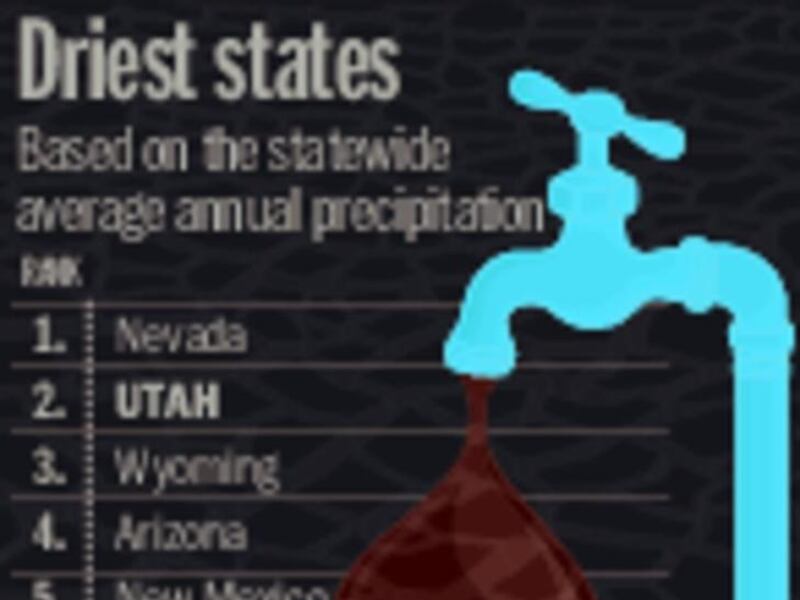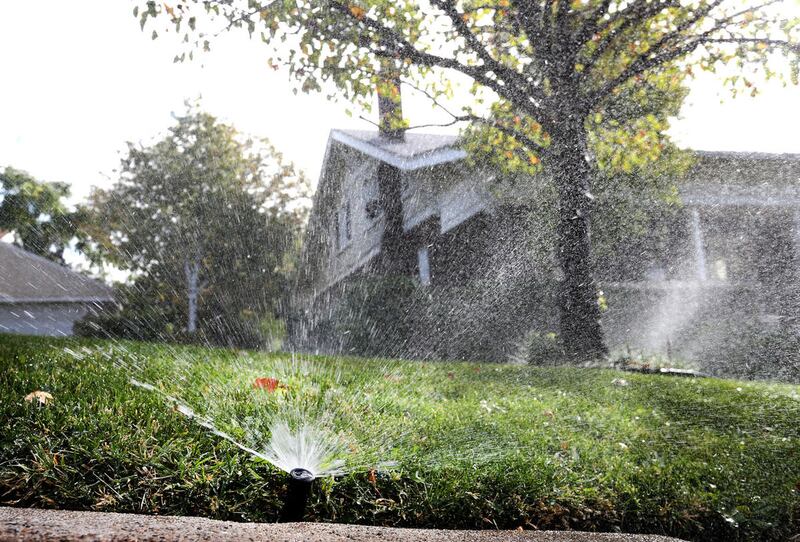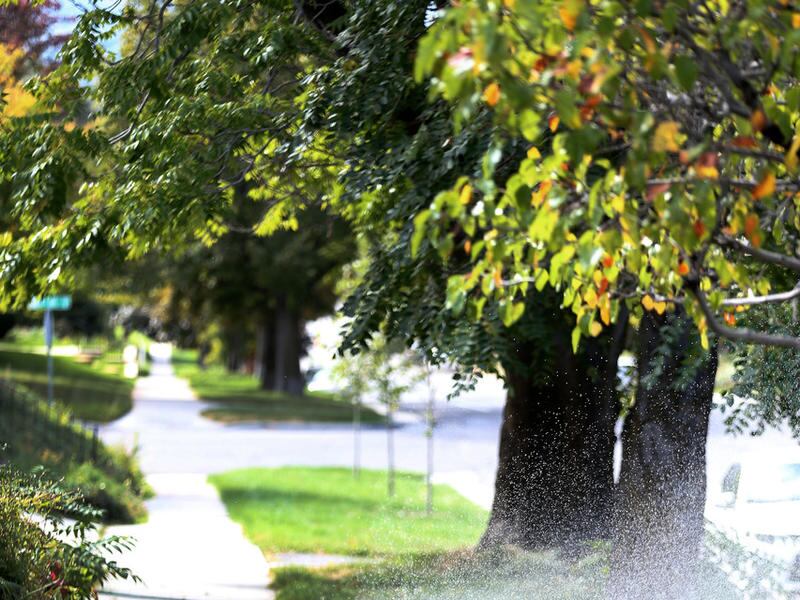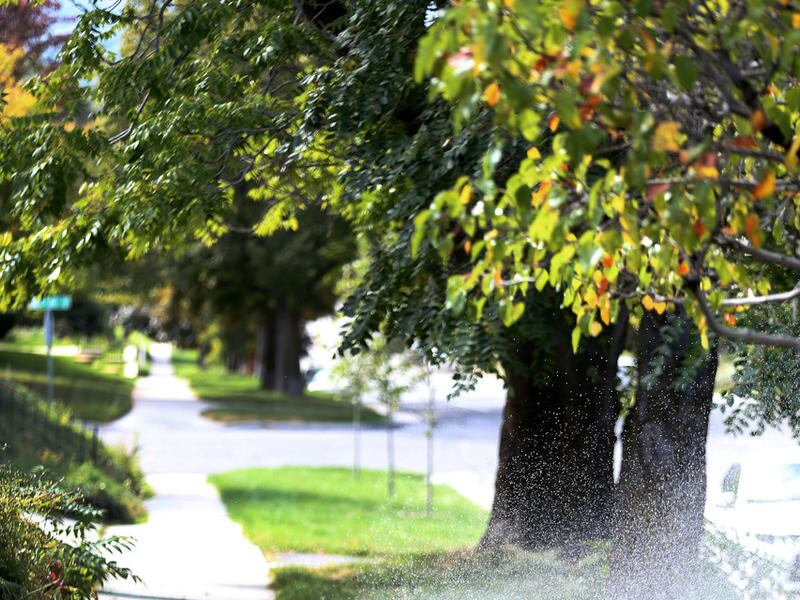SALT LAKE CITY — Utah lawmakers are exploring a fountain of ways to more effectively manage the state's water resources, including getting more accurate information about what is available, where and how it is being used, and ways to get businesses and people to use less.
What may seem like a given in managing water in the nation's second-driest state, the task is actually rife with complexities because of the number of water systems in Utah, the way they use or don't use technology, and pricing methodology that does not always reward conservation.
"How we have operated water in the last 100 years, we really need to move past that because times have changed," said Will Sarni, an expert in water sustainability practices — especially in the corporate world — with Deloitte Consulting.
Sarni was first up to testify in a Wednesday marathon discussion before the Natural Resources, Agriculture and Environment Interim Committee on ways to fix water management in Utah in light of a May audit that slammed current methods of documenting water use in the state.
Performed by the Office of the Legislative Auditor General, the audit pointed to flawed data being used to predict future water supplies. Auditors found there were "significant" inaccuracies and faulty estimates generated among 468 public community water systems and pricing that did little to encourage residents to curtail usage.
The audit emphasized that low water rates, combined with a lack of secondary water metering, fueled a habit of excessive overconsumption among users — residential, government and business.
Sen. Scott Jenkins, R-Plain City, said he has become a "conservationist" when it comes to water, but stressed at the same time it was not because of scarcity, but the need for user accountability, wise use of the resource and better management.
"I am not overly concerned about water availability in the state of Utah. I think we have a lot of water in the state of Utah, and I think economically it will find its way to where it is needed," he said. "As agricultural lands develop and things happen, I think you will find that water. But there is no question in my mind that pressures will continue on our water systems."
With that in mind, Jenkins said he wanted to test the waters — so to speak — for the committee's political appetite to move forward on a resolution during the next legislative session encouraging universal metering on secondary systems within states.
By metering individual household or farming operation use, both districts and users have real data by which to measure consumption, rather than opening the head gate on a ditch or turning on the outdoor faucets to the garden with no sense of how much water is flowing.
Jenkins and the other members of the committee rejected mandating such a move for all system users in the state.
At the Weber Basin Water Conservancy District serving much of northern Utah, officials there said it would cost $100 million to transform the entire system to universal metering.
"That is staggering," Jenkins said.
Rep. Scott Chew, R-Jensen, said education has to be key in the approaches the state and districts take to ensure water is being put to use wisely.
"We in this state have a tendency in different instances to use more water than is needed, and I think education has to go hand in glove with metering," Chew said.
Rep. Stephen Handy, R-Layton, whose family is served by the Weber Basin Water Conservancy District, said the district's implementation of metering for some of its secondary water users hails the beginning of a "new normal" that he predicts will one day be duplicated throughout the state.
Jenkins also said there's legislation he may bring forward to require some level of conservation pricing among public water systems — but how that looks will be up to individual providers.
Richard Bay, general manager of the Jordan Valley Water Conservancy District, said there's been a shift in that direction as well among water retailers.
In 2000, only one of 25 retail and water improvement districts in the district's area had graduated pricing structures which go up the more a user consumes, he said. Today, 23 of 25 of those same entities have adopted the conservation rate structure, Bay said.
Zach Frankel, executive director of the Utah Rivers Council and a strong opponent of big-ticket water development plans like the Lake Powell Pipeline and Bear River Development, warned that conservation pricing is only effective as the rates that are adopted, and the rates have to mean something to consumers' pocketbooks.
"One-hundred million dollars (for metering) is a lot of money, but it is much much less money than $2 billion for the Bear River Development project," Frankel said. "We talk about conservation pricing as if it's an on-off switch. But if St. George had Ogden's rate structure, which is really good, the water use would drop dramatically and the 'need' for the Lake Powell Pipeline would be extended. … The question is: Where do you set the benchmarks?"
Ogden assistant city attorney Mark Stratford said conservation pricing has been important for Ogden, but he cautioned that education has to accompany its implementation, and it can work to the detriment of economic development.
"If we implement conservation pricing that drives away businesses, that is not going to help," he told committee members.
As the committee continues to wend its way through possible reforms on how Utah water is managed — and solicit support from the colleagues on the Hill — members know they are in for more heavy lifting on the subject.
In January, directors of the state's multiple water agencies — drinking water, water quality, the state engineer over water rights and water resources — are expected to tell the committee what they've done so far to rectify some of the wrongs noted in the audit.
The committee is also trying to figure out a way to get private water companies that handle the bulk of the state's agricultural water supplies to get in on the game.
"I think if we are dead serious about getting a true picture of the water use in Utah, we can't exclude them," said Rep. Mel Brown, R-Coalville.
Email: amyjoi@deseretnews.com
Twitter: amyjoi16









